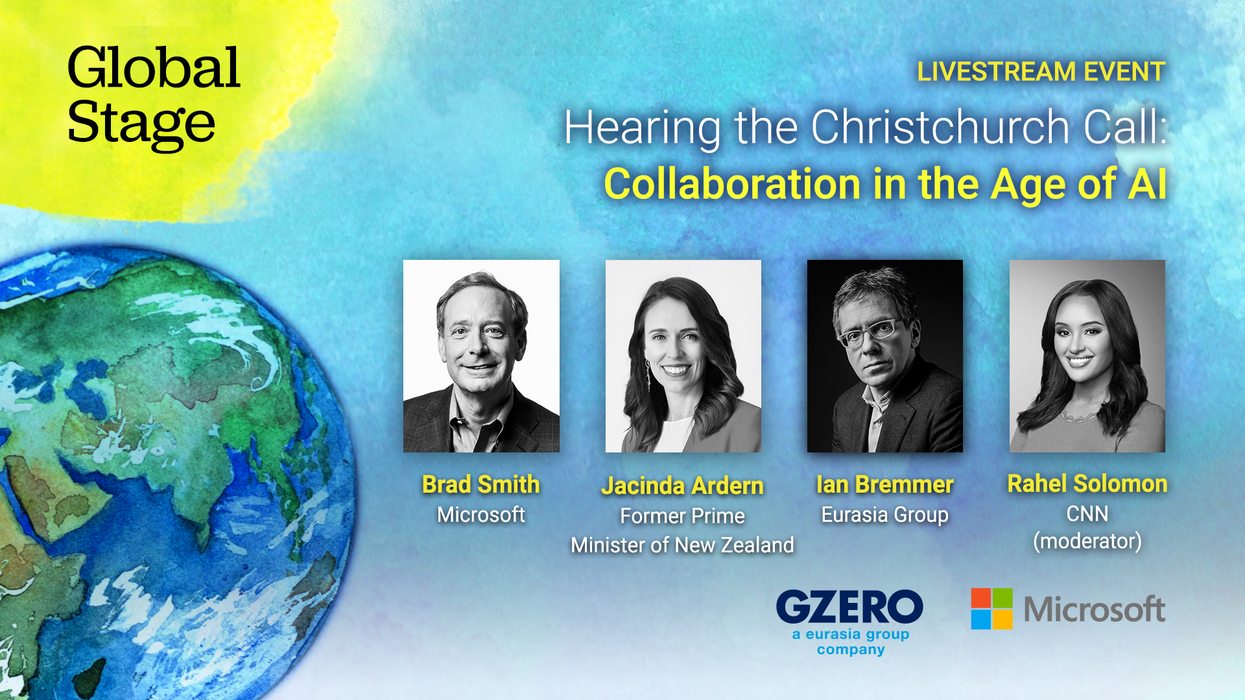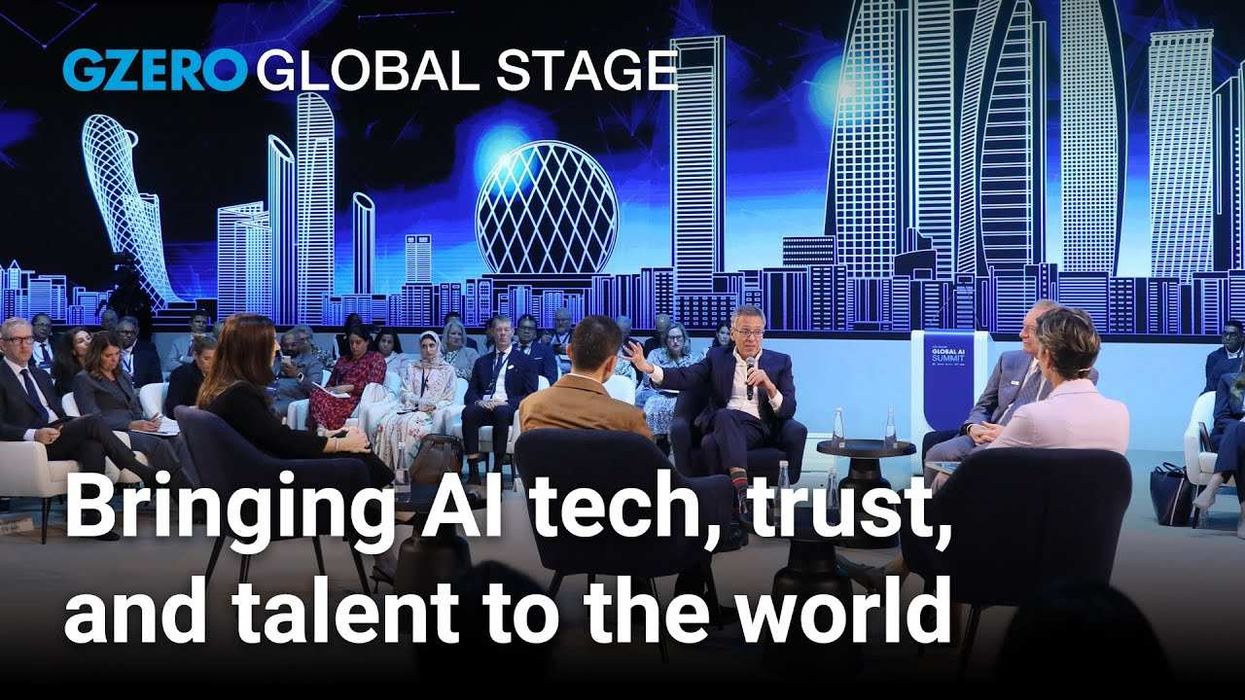GZERO Media, in partnership with the Bill and Melinda Gates Foundation and Eurasia Group, today hosted its second virtual town hall on the hunt for a COVID-19 vaccine and the challenges of its distribution.
The panel was moderated by New York Times science and health reporter Apoorva Mandavilli and featured Gates Foundation's Deputy Director of Vaccines & Human Immunobiology, Lynda Stuart; Eurasia Group's Rohitesh Dhawan, Managing Director of Energy, Climate & Resources; Gates Foundation CEO Mark Suzman; and Gayle E. Smith, the president & CEO of ONE Campaign and former Administrator of the U.S. Agency for International Development.
Watch the full video above.
Lynda Stuart on the politicization of the vaccine race
It's an absolute tragedy. Vaccine hesitancy at the best of times is a growing issue in the US and around the world, and politicizing it just makes it worse. It's remarkable... to see this happen at such a critical moment in history. That is the last thing that we need. The politicians should probably step out of the way and let the scientists and the public health physicians do the work, and the politicians should be taking a back seat and empowering those who are more technical and who do this for a living to really drive this. It's really a great shame.
Rohitesh Dhawan on what happens if China pioneers an effective vaccine, and gives it first to nations already testing it
Producing and getting the vaccines out is a mammoth task. And even though China is a manufacturing superpower, it has had to go out and seek external partners with which to both test and manufacture the vaccine... And the agreements are, of course, to give those countries some portion of the vaccines that are thus developed, but also for China to have access to the spoils of the work... This is a way for countries to exert soft power, and in a GZERO world where the US and China are essentially fighting for privacy geopolitically, this will be a dynamic that we have to live with. [And] types of vaccines which are simple as a handle will naturally be more attractive to countries that have less well-developed healthcare infrastructures [so] we will see natural geopolitical alliances that in some cases reinforce existing alliances, and other cases will create new ones.
Mark Suzman on equitable and speedy vaccine distribution
We've got to realize that this is an unprecedented challenge globally. We've never actually tried to vaccinate most of the entire planet... So it's an unprecedented challenge in terms of manufacturing and distribution. But what we also need is to make sure it's affordable and equitably distributed. That means not just in rich countries alone, where there's the challenge that many rich countries would be buying up vaccine supply. And that's why we and others have been trying to participate in broader efforts to both have a prioritization of who gets the vaccines first — including high risk groups and healthcare workers — and to put a premium on affordability. We need to be manufacturing now multiple vaccine candidates at the same time, so they're ready to distribute as and when we get regulatory approval.
Gayle E. Smith on what the world will look like if we don't get a vaccine soon
There is a real danger that there will be a set of countries that are in a state of, quite frankly, perpetual crisis. [Without] travel corridors, there are countries whose economies will collapse. There is a real, real danger of that kind of crisis and the instability that comes with it. [But] one of the things I think is very positive is that despite all the politics, the geopolitical intrigue, the fight against facts that we have seen tragically as part of this pandemic, we've seen really consistent, robust cooperation among scientists, across borders, across communities. Regardless of what happens, we will see an escalation and deepening of that. And if we don't have a vaccine, it will grow further.



















